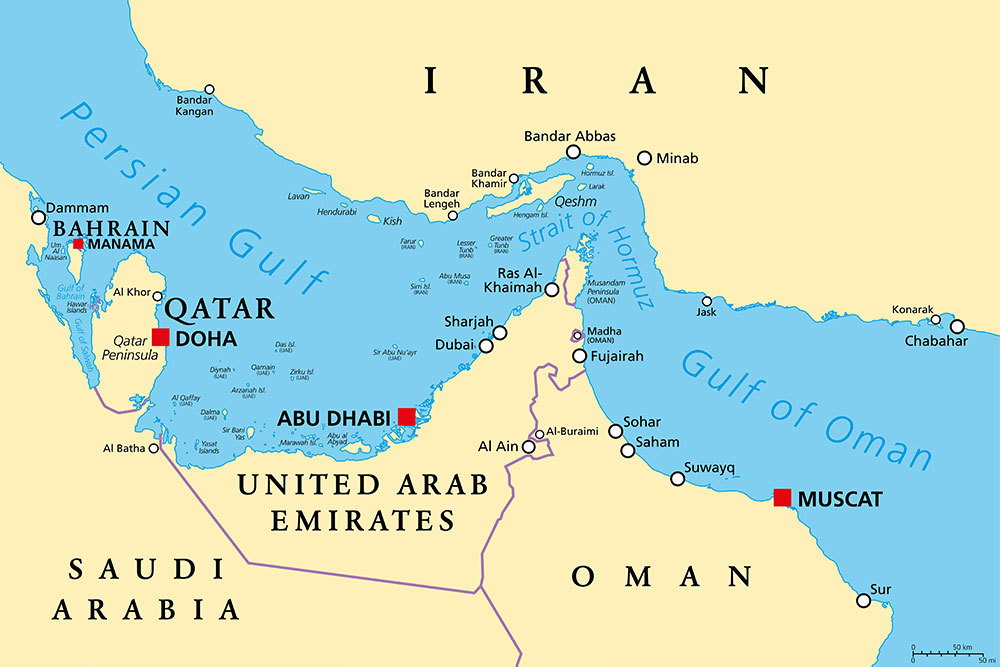
What the Red Sea attacks could mean for markets, inflation
Our experts weigh in on the situation now—and what could happen if the conflict escalates
Since Nov. 19, Iranian-backed Houthi rebels in Yemen have been attacking ships in the Red Sea, causing some shipping companies to avoid the Suez Canal route altogether. In response, U.S. and British forces have responded with airstrikes, and these and other developments have prompted some questions of what will happen if the conflict spreads through the Middle East or goes on for months or more.
Already, the attacks have increased the cost of shipping through the route by nearly 250%, compared to the week when the attacks began, according to the Drewry World Container Index. These added costs could raise the prices of goods and energy, if the situation escalates or is prolonged, experts said.
We've brought together BOK Financial® and Cavanal Hill Investment Management, Inc. experts to address the attacks' current—and potential—impacts to the global supply chain and oil prices, and even financial markets and prices in the U.S.
Q: To what extent currently are shipping companies avoiding the Suez Canal and how much is it impacting markets?
Key trade routes in the Middle East


Peter Tibbles, senior vice president of foreign exchange for BOK Financial: The Suez Canal and the Red Sea are seen as vital shipping routes connecting the Mediterranean Sea to the Indian Ocean. Container shipping traffic through the canal has decreased by about 90% year-over-year, as of the first week of January. The longer routes which these ships are being forced to take are adding to both shipping times and freight costs to move goods, thus affecting the entire supply chain.
The Danish shipping giant Maersk did resume crossings between Dec. 25 and Jan. 2, but only with a U.S.-led naval coalition. Meanwhile, other large shipping companies continue to steer clear of the region due to security concerns.
Matt Stephani, president of Cavanal Hill Investment Management, Inc.: Some shipping companies are avoiding the Red Sea by instead going around the horn of Africa, which is adding seven to 10 extra days to shipment times and increasing fuel costs. As a result, some shipping companies are adding surcharges of hundreds of dollars to cover the rerouting costs.
If this added cost shows up in the cost of goods sold, that will be slightly inflationary, which is a concern given that the U.S. has just gotten through this big inflationary hump that we had last year. However, I believe the duration of these attacks will be short enough that I don't think they're a real issue yet for markets. I don't think it will show up measurably in price indices unless this situation were to last for six months or longer.
Dennis Kissler, senior vice president of trading for BOK Financial: The Suez Canal is a crucial route for petroleum products, which of course includes crude oil and LNG (liquefied natural gas) that flows from the Middle East. The backlog of loads and slowing shipments is creating nervousness in the market, elevating prices and could slow supply chains if the situation continues.
Q: If the situation were to escalate, how would the level of supply chain disruption compare to the disruption caused by the pandemic? How might we see markets impacted?
Tibbles: If the situation were to worsen, then that would bring shipping through the area almost to zero, which would add to supply chain issues. However, I do not foresee the same type of disruption that occurred during COVID, which was very much about the supply side and China essentially shutting down due to the pandemic.
Kissler: If the attacks were to escalate—for example, if an oil tanker were to sink or tanker crew members were to be killed—then most Middle Eastern oil that comes out of the Strait of Hormuz that heads through to the Suez Canal would be halted or significantly delayed. That amounts to roughly 20% of global petroleum products used.
In that case, we could see a total stoppage or very long delays, which would add a war-type premium to crude oil and other petroleum product prices. Near-term supplies would be tighter, just as winter heating demand is near its peak. In that scenario, I see West Texas Intermediate (WTI) crude prices being pushed to the upper-$80-per-barrel area, with North Sea Brent in the $90-a-barrel area. This, of course, would have a negative effect on global economies and very possibly reignite inflation very quickly.
Stephani: If the Strait of Hormuz were to shut down for even a few days, oil prices would spike significantly. There's a low likelihood of that happening right now, but if it did and higher oil prices raised inflation, expectations of future inflation might go higher. Then, the concerns within financial markets would be: will the Federal Reserve have to keep rates higher for longer? Do they have to raise rates again? Does the market need to start pricing out some of the rate cuts that have been priced in?
The bottom line: The effect on U.S. companies that do business overseas have has been negligible so far, Stephani said. Moreover, even with the current delays in shipping times and more expensive shipping costs, we haven't seen a lasting impact on prices yet, the experts agreed. However, if the situation escalates, the impact could be felt worldwide.
2024 Annual Outlook
BOK Financial investment experts provide their outlook on key issues expected to affect the economy and financial markets for the year ahead.
